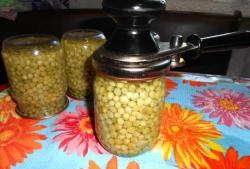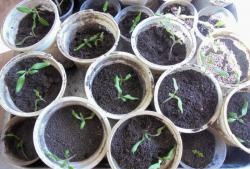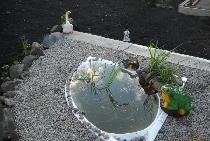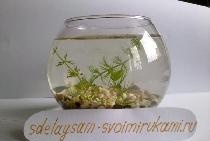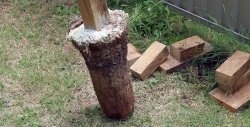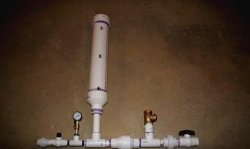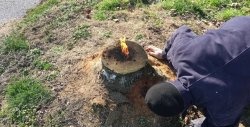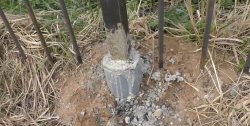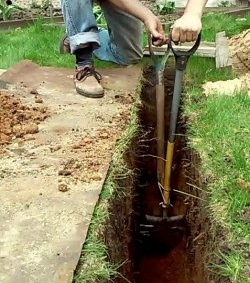How to cover conifers for the winter
Coniferous plants planted this year do not have time to develop powerful rhizomes during the season and become strong enough to survive in harsh winter conditions. Young plantings need protection created in various ways using factory-made or home-made structures.
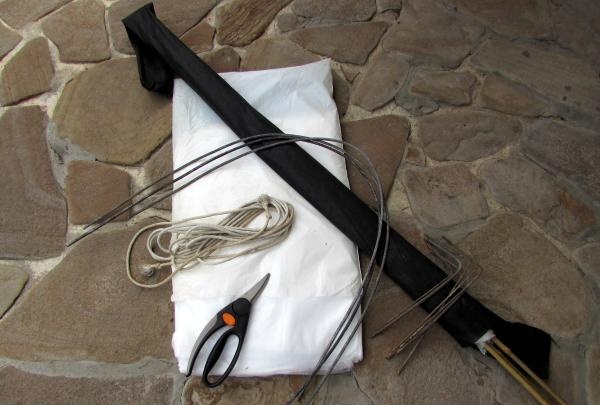
The optimal time for covering plants is dry weather that sets in with the arrival of stable cold weather. It is recommended to place protective materials on frames that ensure the integrity of the branches and optimal ventilation.
We purchase ready-made shelters.
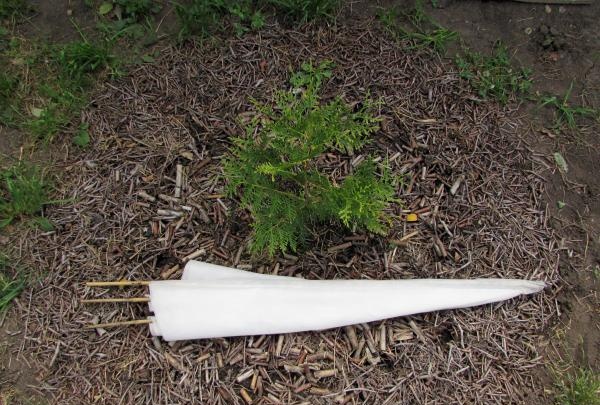
Purchased structures are ready-made kits that are easy to install and do not require additional accessories. Among the many options, you can always choose shelters that are suitable in shape and size.
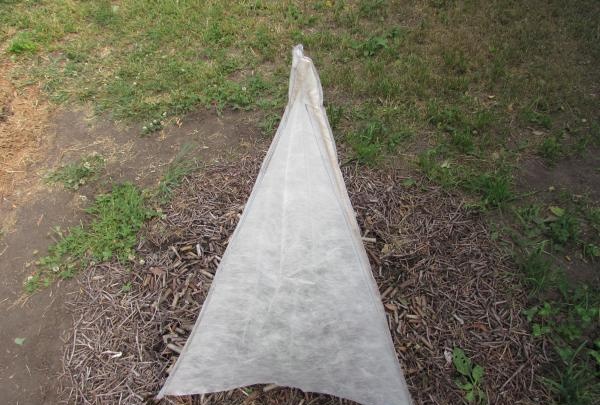
The frames of these products are made of polymer or metal tubes, bamboo rods or fine mesh. Non-woven fabrics are used as protective material, allowing air to pass through and maintaining a dry atmosphere inside the shelter, for example, Snapbond or Agrospan.
We cover the homemade frame with purchased material.
Another way to organize a winter shelter is to separately purchase the required amount of non-woven material, which allows you to save about half the money. In this case, the base for securing the canvas is built with your own hands from thick wire. Homemade arcs are installed crosswise over the plant.
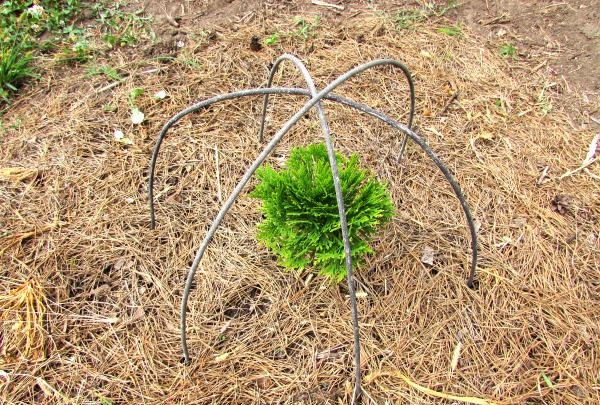
The synthetic fabric is stretched over the frame and pinned with wire pins.
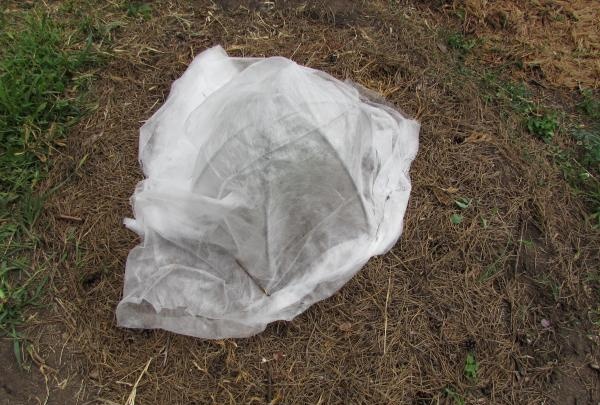
We use wooden supports and burlap
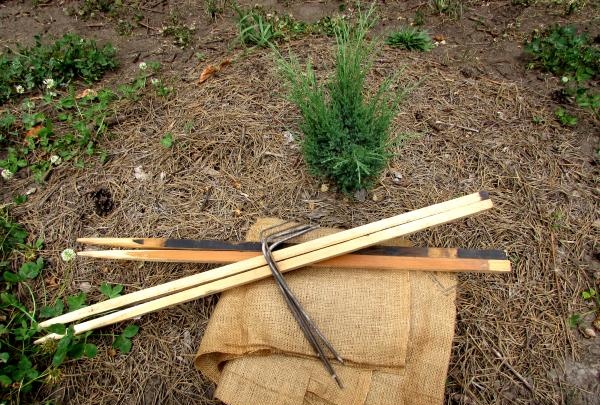
To make a simple frame, you will need four pegs that are twice the height of the coniferous plant being covered. The ends of the wooden slats are knocked down with a nail and racks resembling a compass are installed in place. It is better to stick stakes into the ground in advance, without waiting for it to freeze.
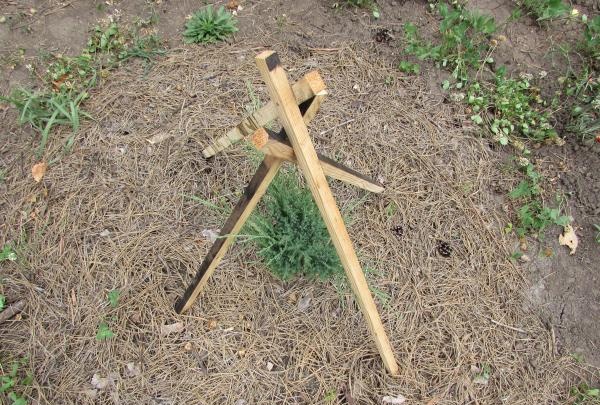
With the onset of stable night frosts, the wooden base is covered with burlap, fixing the fabric with bent wire pins or stones.
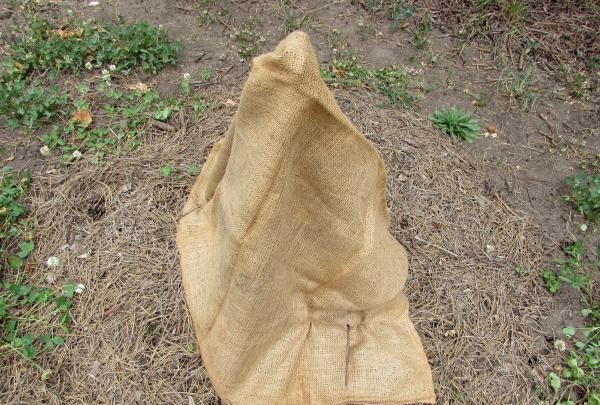
We collect spruce spruce branches
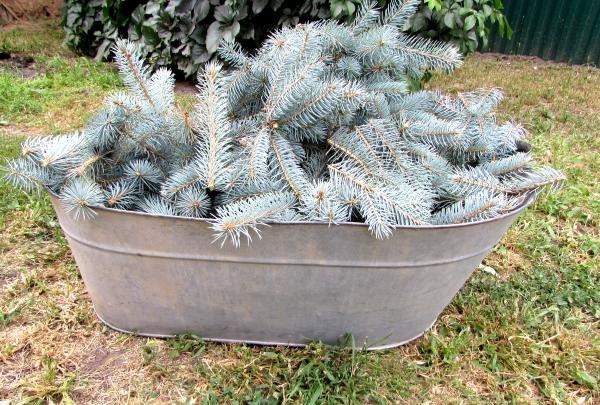
Spruce branches serve as an excellent winter shelter, which additionally protects plants from rodents. The air layer created under the thorny branches is well ventilated and less subject to temperature changes. Spruce branches are harvested exclusively from healthy trees; you cannot use infected needles and transfer diseases to young seedlings.
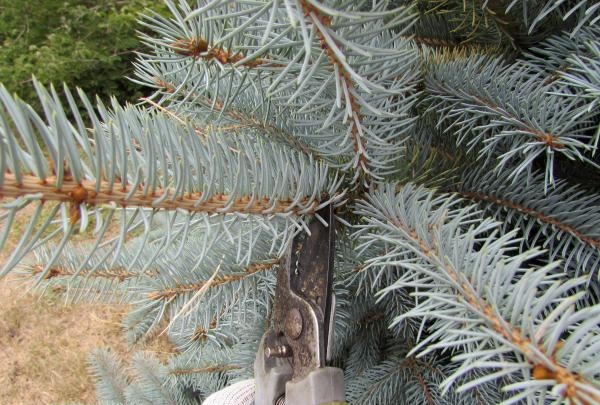
Long spruce or pine legs are perfect for shelter - they are folded over the plant in the form of a hut, tied at the top with twine. But the short shoots remaining after the formative pruning of mature trees are also used. First, wire arcs are installed on top of the bush. Then the frame is covered with cut branches.
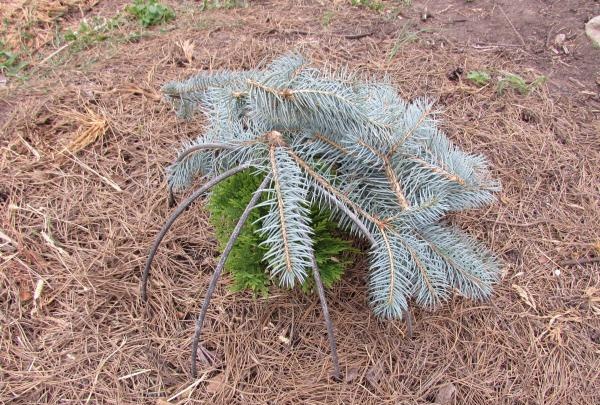
The result is an ideal shelter that saves the coniferous plant from the ice crust in winter.
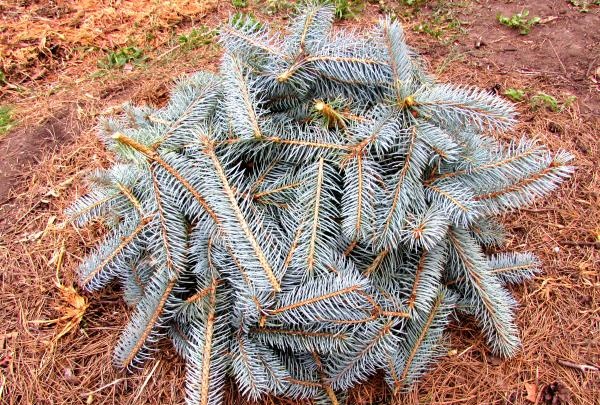
Another advantage of spruce branches is that they do not rot and do not contribute to the proliferation of destructive microorganisms.
We protect the root system.
The trunk circles of coniferous seedlings are mulched with some kind of organic matter, spreading the material in a loose layer at least 5 cm thick. A mixture of soil and leaves is well suited for covering the roots. Left under the bush in the spring, it rots and serves as additional feeding.
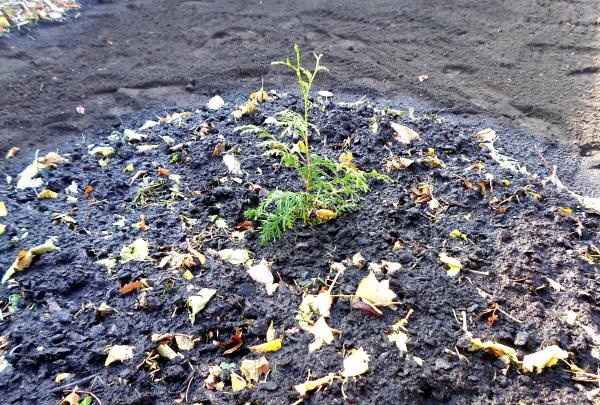
The coniferous plants remaining in the containers are dug into the ground for the winter or a blanket of sawdust is placed near them.
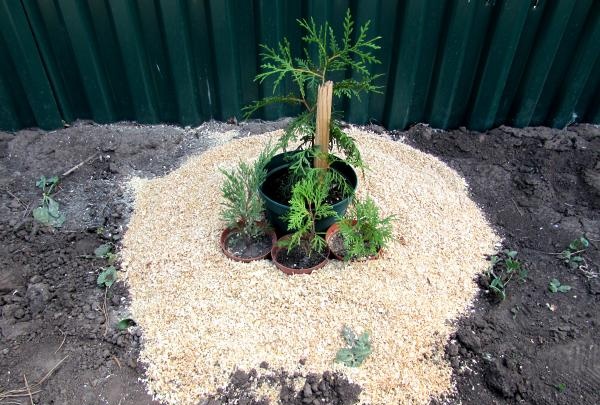
The ground part of the seedlings is protected by any of the available methods.
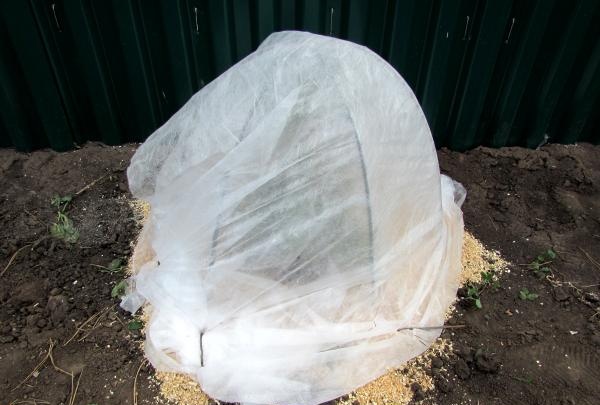
Each of the structures considered begins to be ventilated when the spring rays of the sun melt the snow around it. First, the northern side is opened slightly, and after the soil thaws, the protective material is completely removed.
Winter shelter for young coniferous plants is one of the means to increase the winter hardiness of plantings. It should not be taken as the only method that guarantees a safe winter. An experienced gardener is always thoughtful about preparing plants, paying attention to planting, watering and fertilizing.

The optimal time for covering plants is dry weather that sets in with the arrival of stable cold weather. It is recommended to place protective materials on frames that ensure the integrity of the branches and optimal ventilation.
We purchase ready-made shelters.

Purchased structures are ready-made kits that are easy to install and do not require additional accessories. Among the many options, you can always choose shelters that are suitable in shape and size.

The frames of these products are made of polymer or metal tubes, bamboo rods or fine mesh. Non-woven fabrics are used as protective material, allowing air to pass through and maintaining a dry atmosphere inside the shelter, for example, Snapbond or Agrospan.
We cover the homemade frame with purchased material.
Another way to organize a winter shelter is to separately purchase the required amount of non-woven material, which allows you to save about half the money. In this case, the base for securing the canvas is built with your own hands from thick wire. Homemade arcs are installed crosswise over the plant.

The synthetic fabric is stretched over the frame and pinned with wire pins.

We use wooden supports and burlap

To make a simple frame, you will need four pegs that are twice the height of the coniferous plant being covered. The ends of the wooden slats are knocked down with a nail and racks resembling a compass are installed in place. It is better to stick stakes into the ground in advance, without waiting for it to freeze.

With the onset of stable night frosts, the wooden base is covered with burlap, fixing the fabric with bent wire pins or stones.

We collect spruce spruce branches

Spruce branches serve as an excellent winter shelter, which additionally protects plants from rodents. The air layer created under the thorny branches is well ventilated and less subject to temperature changes. Spruce branches are harvested exclusively from healthy trees; you cannot use infected needles and transfer diseases to young seedlings.

Long spruce or pine legs are perfect for shelter - they are folded over the plant in the form of a hut, tied at the top with twine. But the short shoots remaining after the formative pruning of mature trees are also used. First, wire arcs are installed on top of the bush. Then the frame is covered with cut branches.

The result is an ideal shelter that saves the coniferous plant from the ice crust in winter.

Another advantage of spruce branches is that they do not rot and do not contribute to the proliferation of destructive microorganisms.
We protect the root system.
The trunk circles of coniferous seedlings are mulched with some kind of organic matter, spreading the material in a loose layer at least 5 cm thick. A mixture of soil and leaves is well suited for covering the roots. Left under the bush in the spring, it rots and serves as additional feeding.

The coniferous plants remaining in the containers are dug into the ground for the winter or a blanket of sawdust is placed near them.

The ground part of the seedlings is protected by any of the available methods.

Each of the structures considered begins to be ventilated when the spring rays of the sun melt the snow around it. First, the northern side is opened slightly, and after the soil thaws, the protective material is completely removed.
Winter shelter for young coniferous plants is one of the means to increase the winter hardiness of plantings. It should not be taken as the only method that guarantees a safe winter. An experienced gardener is always thoughtful about preparing plants, paying attention to planting, watering and fertilizing.
Similar master classes
Particularly interesting
Comments (0)

